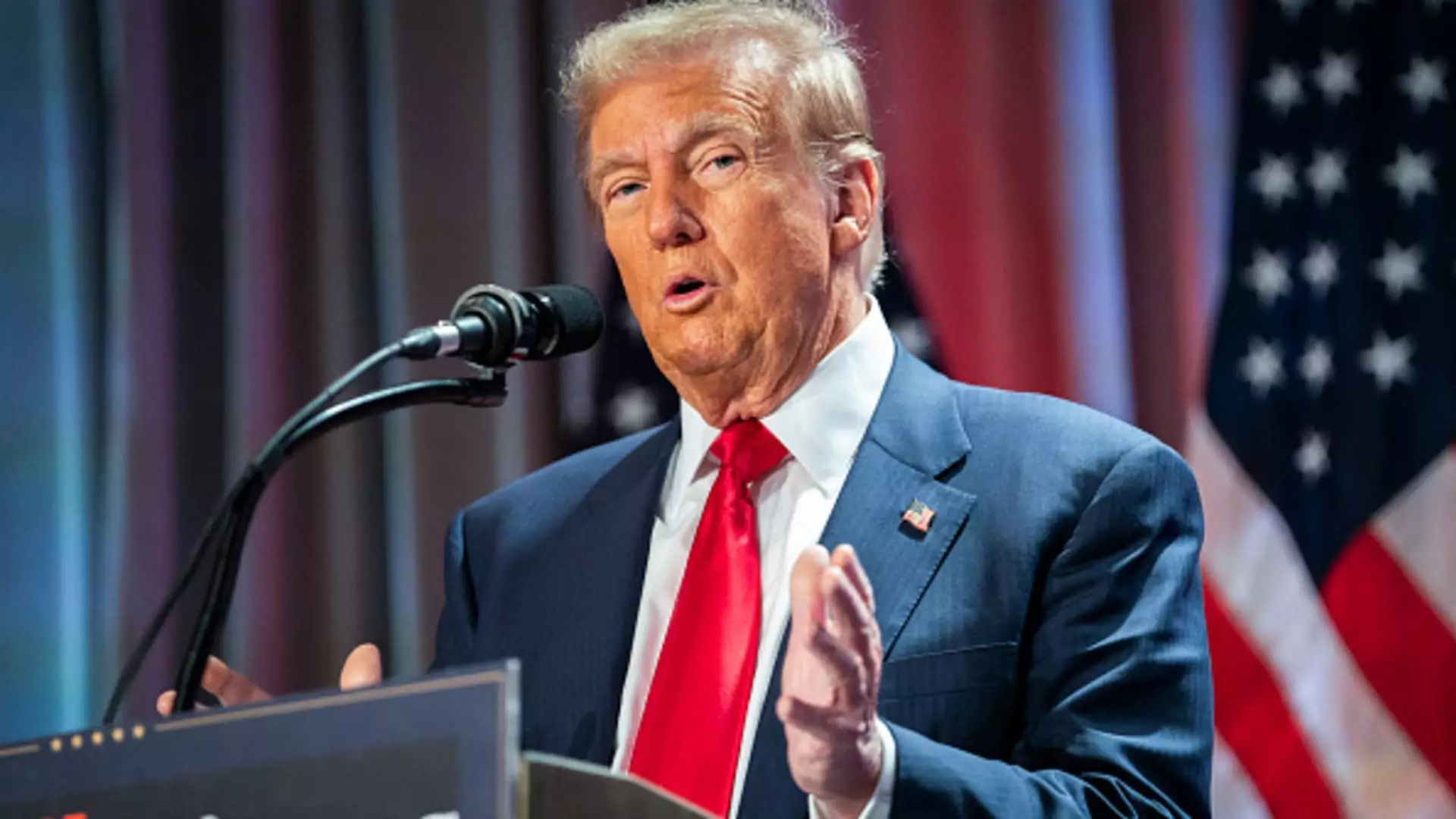As President-elect Donald Trump prepares to implement his tariff agenda, investors are faced with a unique landscape that requires strategic navigation. Money manager John Davi, CEO of Astoria Portfolio Advisors, perceives these policy changes as potentially inflationary, which raises red flags for asset allocation. Davi’s insights challenge investors to reassess the traditional notions of diversification and risk management, focusing specifically on how tariffs may alter the investment ecosystem.
One critical stance Davi takes is the preference for small-cap industrial stocks over their large-cap counterparts. This approach appears to be a tactical maneuver designed to capitalize on a pro-growth domestic agenda anticipated from the new administration. Given the historical tendency for smaller firms to be more agile and responsive to local economic conditions, Davi’s strategy is both timely and relevant. The current climate suggests that small-cap stocks may experience greater benefits from domestic policies, particularly in an environment marked by tariffs that could disproportionately affect larger multinational companies.
Since the election, the Russell 2000 index, a key barometer for small-cap performance, has shown a promising uptick of approximately 4%. This suggests that many market participants share Davi’s optimism about small-cap potential. The shift in focus toward smaller companies is not only a reflection of current sentiment but also illustrates a broader trend towards domestic investment. Davi’s belief that the pro-growth policies will create favorable conditions for small caps is a viewpoint increasingly echoed across various financial platforms.
Davi advocates for a significant overweighting of U.S. assets as a prudent play in the coming years, especially leading into the midterm elections. As Trump’s administration looks to exert influence over economic narratives, the potential for favorable legislation may create fertile ground for growth-oriented investment strategies. However, such a strategy requires careful selection, as not all sectors will benefit equally from the anticipated policies, underscoring the importance of diligence in investment decisions.
In contrast to the bullish stance on equities, Davi’s apprehension towards fixed income is noteworthy. He warns of challenges associated with a growing budget deficit, advising investors to tread carefully in this space. The rising yield on the benchmark 10-year Treasury following the election reflects the market’s shifting expectations and the inflationary pressures that may emerge from increased government spending tied to Trump’s plans. This juxtaposition of growth in equities against potential volatility in fixed income markets serves as a reminder of the need for a balanced and responsive investment strategy.
John Davi’s perspectives reflect a broader narrative in today’s financial landscape, where macroeconomic policies and geopolitical factors prominently shape investment decisions. As investors seek to position themselves appropriately amidst tariff uncertainties, Davi’s emphasis on small-cap stocks and domestic assets, coupled with cautiousness towards fixed income, serves as a compelling framework. Ultimately, navigating this evolving scenario requires an acute awareness of market trends and the agility to adapt investment strategies in response to shifting economic tides.

